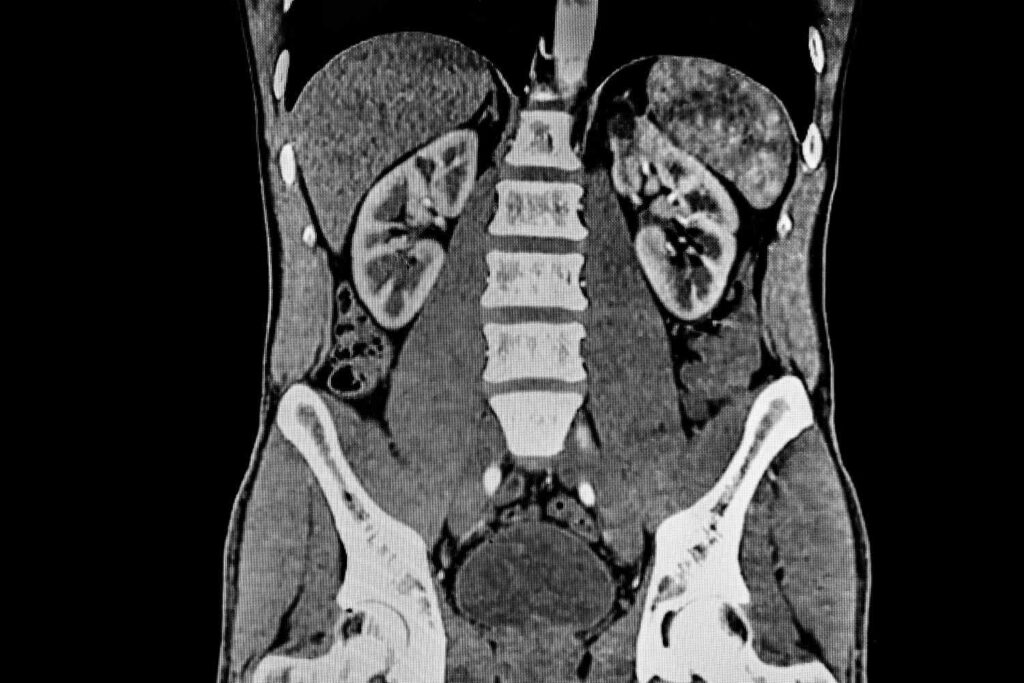A CT scan of the abdomen is a vital medical imaging procedure used for urgent and critical diagnostic purposes. This imaging technique employs X-rays to generate detailed cross-sectional images of the abdominal region, encompassing organs such as the liver, pancreas, kidneys, intestines, and blood vessels.
Commonly conducted in cases of acute abdominal pain, unexplained weight loss, suspected organ abnormalities, or the need for precise preoperative planning, an abdominal CT is an indispensable tool for clinicians in emergency and critical care situations.
Key Applications:
- Trauma Assessment: In cases of abdominal trauma, a CT scan swiftly provides a comprehensive evaluation of potential injuries to internal organs, guiding prompt and appropriate medical interventions.
- Tumor Detection: Abdominal CT scans are crucial for identifying and characterizing tumors within the liver, pancreas, kidneys, and other abdominal structures. This aids in the formulation of accurate treatment strategies.
- Infection Diagnosis: Rapid detection and localization of infections, such as abscesses or inflammatory conditions in the abdomen, are facilitated through abdominal CT imaging.
- Vascular Abnormalities: The assessment of blood vessels, including the aorta and its branches, is paramount for identifying aneurysms, dissections, or other vascular anomalies that demand immediate attention.
- Gastrointestinal Issues: Abdominal CT aids in diagnosing and evaluating conditions affecting the gastrointestinal tract, such as bowel obstructions, perforations, or inflammations.
Procedural Overview:
- Contrast Administration: Depending on the clinical scenario, a contrast agent may be administered orally or intravenously to enhance visibility of certain structures during the CT scan.
- Patient Positioning: The patient is positioned on the CT scanner table, and images are acquired in a series of cross-sectional slices during a rapid and controlled rotation of the X-ray tube.
- Diagnostic Analysis: The obtained images are meticulously analyzed by skilled radiologists, providing precise information to guide clinical decision-making.
Cautionary Note: Given the gravity of situations necessitating an abdominal CT, it is imperative that patients promptly follow medical recommendations and adhere to prescribed protocols. The urgency of such investigations underscores the critical nature of the diagnostic information garnered from these scans, guiding timely and potentially life-saving interventions.
In moments of medical urgency, swift and unwavering action is paramount. If advised by a healthcare professional, compliance with diagnostic procedures is non-negotiable.


